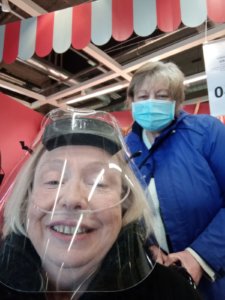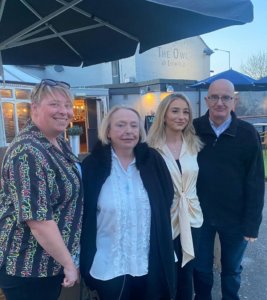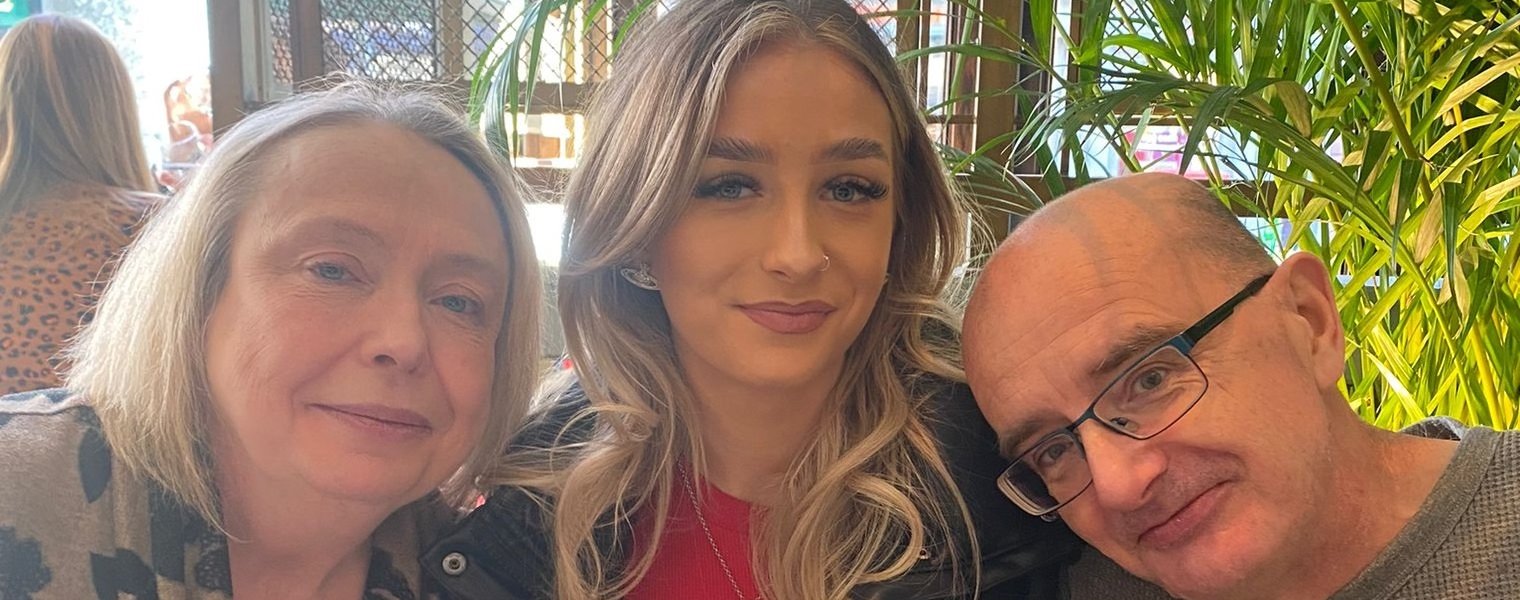“You’ve got to have trust, and you’ve got to keep yourself going”
After being diagnosed with idiopathic pulmonary hypertension in 2010, Maria Brook has found many ways to stay positive over the years. As part of her ongoing commitment to helping others, in May 2022 she shared what she has learned…
“Thing weren’t easy when I first got my diagnosis. I had to give up my job in retail (I was a manager of a shoe shop), and I still find that hard to this day. I couldn’t even get myself to the bus stop back then, but life started changing for the better and these are some of the things that have made a difference along the way…
Setting goals and celebrating the small things
I work on goals and that’s how I live. When I was ill for the first time in intensive care, I had to learn to walk again, and I’ve been setting goals for myself ever since. I think it’s really important.
I have some that are quite easy to achieve, some that are ‘medium’ and some that are hard.
A small goal might be cleaning and wiping down my shower doors, because I need to bend down. A medium one would be managing to do half the shower, and a hard one would be doing the shower and the washing too.
If I don’t achieve a particular goal one day, I try not to get deflated and instead I’ll try again the next day.
I write things down and tick them off once I’ve achieved them, and if it’s a bigger goal, I might break it up into smaller steps.
I’ve been talking to [PHA UK team member] Paul Sephton on the PHA UK’s Listening Line service and he has helped me a lot, as we set goals together and I can then tell him what I’ve achieved the next time we speak. He helps me to brush it off if I don’t achieve something first time, and encourages me to try again.
One goal, after the covid lockdowns, was to go out for a meal with my family. The first time I went into a restaurant I froze and started shaking, but it’s getting better.
One place I really missed through covid was IKEA and I made going again one of my biggest goals. I’m pleased to say I did it, in April, with the help of my friend who came with me.

Friends, family and keeping active
Having a lot of friends around me to be able to talk to has helped throughout the years, and my family have been important too.
It really helped me see my eldest daughter Leanne-Elise go through university and get the job of her dreams. I’m very proud of her.
I also want to see my youngest daughter get through her milestones and that motivates me to keep going.
I wanted to see her get to senior school and see her through prom and her GCSEs. I wanted to see her get to university and now I want to see her graduate, get a job, and get married. It’s helped me an awful lot to concentrate my mind on her.

My husband is wonderful, he’s my rock. He helped me take an allotment to grow seeds in, and he and my daughter did all the digging and planting. It was a team effort, and it’s helped me to feel like I’ve achieved something.
Soon after I was diagnosed, I joined an exercise group and made friends with some of the elderly people there, who encouraged me to join the Women’s Institute (WI), and I became part of the committee. Friends would come to visit me too, as I like to talk to people, and all that really kept me going.
The pandemic stopped all that, but I’m starting to get out and about a bit more now.
Getting outside and doing some exercise is important to me. I try to do walking with my friend and if I’m at home, I follow light exercise videos on YouTube or do yoga on the Wii Fit console.
A helping hand
If I can help people that’s the best thing, because I feel like I’m doing something then. I’ve got a friend who suffers very badly with depression, and she had to give up work too, so we’ve started doing lots of things together.
We encourage each other to go for walks and it gets us both out of the house.
Once a week I cook a meal for an elderly lady who lives locally. I like cooking, so it helps me too, and I push myself to do it even when I’m not feeling great, so it’s a good goal to have. If I really can’t do it one week, my husband will do it for me.
No matter how ill I am, I still like to help people.
Pulling out the positives
Sometimes I do get upset about things because I’m only 58. I’m on oxygen 24/7 and when I was diagnosed, I was only given six years, and that is often on my mind.
I look at couples walking along the street holding hands, and I feel bad that my husband and I can’t do that because I’m in a wheelchair. I feel bad that we can’t do fun things as a family.
But I have to pull myself together and remember that I’m still here, still seeing my daughters, and I’ve still done lots in my life. There are people who are far worse off who haven’t had that chance.
My specialist centre have really helped me, which has made a big difference, and I have a lot of trust in them. You’ve got to have trust, and you’ve got to keep yourself going.”
















